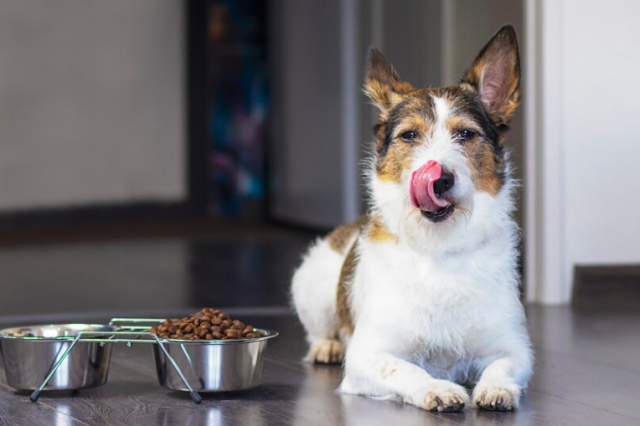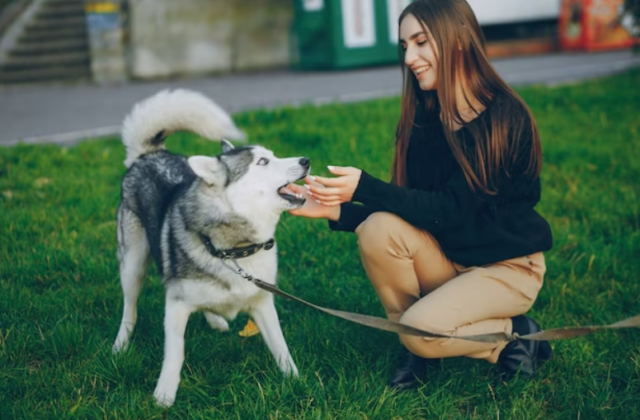Introduction
Are you a proud husky owner searching for the best dog food to meet the unique dietary needs of your beloved pet? Look no further! In this comprehensive guide, we will explore the top recommendations for husky nutrition. By choosing the right food for your husky, you can ensure their overall well-being and maintain their energetic and playful nature. Let’s dive into the world of husky nutrition and discover the best dog food options available.

Understanding Husky Nutritional Requirements
Huskies are active and energetic dogs that require a well-balanced diet to support their unique needs. Essential nutrients such as protein, fats, carbohydrates, vitamins, and minerals play a vital role in keeping your husky healthy and thriving. Tailoring their diet to their specific age and activity level ensures they receive optimal nutrition.
Decoding Dog Food Labels: What to Look For
When selecting dog food for your husky, it’s important to read and understand the labels. Look for high-quality protein sources, such as real meat or fish, listed as the primary ingredients. Healthy fat content, including omega-3 fatty acids, helps maintain a glossy coat and supports joint health. Carbohydrates and fiber provide the necessary energy and aid in digestion while avoiding common allergens and fillers is essential to prevent potential sensitivities.
Top Picks for the Best Dog Food for Husky
-
Premium Husky-Specific Formulas: These dog foods are specifically formulated to meet the unique nutritional needs of huskies, taking into account their active lifestyle and specific breed characteristics.
-
Grain-Free Options for Sensitive Stomachs: If your husky exhibits sensitivities or allergies to grains, grain-free formulas can provide an alternative without compromising their nutritional requirements.
-
Raw and Natural Diets: Raw food or natural diets, which closely mimic a dog’s ancestral eating habits, are gaining popularity. While these diets can offer benefits, they require careful preparation and may not suit every husky’s needs.

Feeding Tips for a Happy and Healthy Husky
To ensure your husky’s well-being, it’s important to establish good feeding habits. Portion control and a consistent feeding schedule are key factors. Avoid overfeeding, as huskies have a tendency to gain weight if not monitored closely. Provide fresh and clean water at all times to keep your husky hydrated, especially during active periods. Treats and supplements should be given in moderation, as excessive indulgence can lead to weight gain and nutritional imbalances.
Conclusion
Choosing the best dog food for your husky plays a vital role in ensuring their health and vitality. By understanding their nutritional requirements and selecting high-quality formulas, you can provide your furry companion with the nutrients they need to thrive. Remember to tailor their diet to their age and activity level, establish good feeding habits, and consult with a veterinarian for personalized advice. With the right nutrition, your husky will be on their way to a happy and healthy life by your side.
FAQs
Q1: Is it necessary to feed my husky a specific dog food formula?
While it's not mandatory, feeding your husky a formula specifically designed for their breed can ensure they receive the optimal balance of nutrients tailored to their needs.
Q2: How often should I feed my husky?
Adult huskies typically do well with two meals per day. Puppies may require more frequent feeding. Consult your veterinarian to determine the ideal feeding schedule for your husky's age and activity level.
Q3: Can I feed my husky a homemade diet?
It is possible to provide a homemade diet for your husky; however, it requires careful planning and understanding of their nutritional needs. Consult with a veterinary nutritionist to ensure the homemade diet is properly balanced.
Q4: Are there any food ingredients I should avoid feeding my husky?
Some common allergens for dogs, including huskies, are wheat, soy, and corn. It's best to avoid these ingredients and opt for high-quality protein sources, wholesome grains (if tolerated), and easily digestible carbohydrates.
Q5: What signs indicate that my husky is not tolerating their current food well?
Signs of food intolerance or allergies may include digestive issues (such as diarrhea or vomiting), skin problems (itching, redness), or changes in behavior. If you suspect your husky is not tolerating their food, consult your veterinarian for guidance.
Read also
- Unraveling the Mystery: Why Is Your Dog Chewing His Paws?
- Discover the Fascinating Turner and Hooch Dog Breed: A Perfect Blend of Loyalty and Comedy”
- Homemade Dog Food Recipe: Happy Tail-Wagging Guaranteed!
- Best Anti Barking Device: Silence Your Dog’s Excessive Noise
- Discover the Enchanting Feist Dog Breed: A Blend of Tenacity and Intelligence
- Dog Breeding : An Ultimate Guide To Choose The Best
- Unveiling the Unconventional: Ugliest Dog Breed
- Discover the Best Dog Food for German Shepherd Puppy: Unveiling the Ultimate Guide!
- Dog First Aid: Essential Tips to Keep Your Furry Friend Safe and Healthy
- Discover the Enchanting Teddy Bear Dog Breed: A Perfect Companion for All Ages
- Discover the Best Natural Dog Shampoo for a Happy and Healthy Pet
- Dog First Aid Kit: Essential Supplies for Your Canine Companion
- Stop Your Dog’s Paw Chewing Habit Now! Effective Solutions Revealed
- Understanding the Phrase “My Dogs Are Barking” and Its Meaning
- Vet Approved Homemade Dog Food Recipes for Kidney Disease
- Attention Dog Lovers: Japanese Breeds Unleashed!
- Unlock Duck Hunting Secrets: Most Effective Dog Breeds
- Stop Dog Chewing Furniture: 7 Effective Home Remedy That Work!
- Discover the Fascinating Bear Dog Breed: A Perfect Blend of Power and Gentleness
- Corgi vs Shiba Inu – Which Breed Is Right for You?





